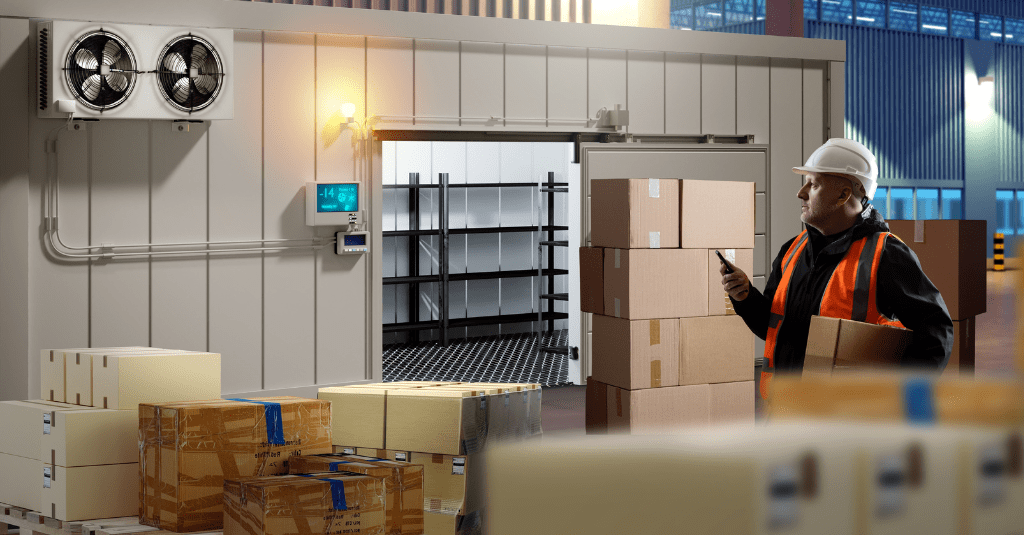The luxury food market is characterized by high-value, perishable products that demand impeccable quality and freshness. From caviar and truffles to artisanal cheeses and fine chocolates, these items require specialized handling and storage to maintain their premium status. Innovations in cold chain logistics are crucial for ensuring that luxury food products reach consumers in pristine condition. This blog explores the latest advancements in cold chain technology and practices tailored to the luxury food market.
The importance of cold chain in the luxury food market
Maintaining the integrity of luxury food products throughout the supply chain is essential for several reasons:
Quality assurance: high-value foods are often sensitive to temperature fluctuations, which can affect their taste, texture, and appearance.
Brand reputation: ensuring that products arrive in perfect condition is critical for maintaining brand reputation and customer satisfaction.
Regulatory compliance: strict regulations govern the handling and transportation of perishable goods, particularly in the luxury sector.
Statistical insight: according to the global cold chain alliance, the global market for luxury foods is expected to grow by 8% annually, driven by increasing consumer demand for high-quality, gourmet products.
Key innovations in cold chain logistics
1. Advanced temperature monitoring and control
Real-time temperature monitoring and control systems are essential for maintaining the optimal conditions for luxury foods.
Features:
Iot sensors: deploy iot sensors to continuously monitor temperature, humidity, and other environmental parameters throughout the supply chain.
Automated alerts: set up automated alerts for any deviations from the ideal temperature range, enabling quick corrective actions.
Data analytics: use data analytics to identify patterns and optimize temperature management.
Statistical insight: according to marketsandmarkets, the adoption of iot in cold chain logistics is projected to grow at a cagr of 15.2% from 2021 to 2026.
Case study:
Example: a luxury chocolate producer implemented iot sensors in their storage and transportation units. This system provided real-time data and automated alerts, reducing spoilage by 25% and ensuring consistent product quality.
2. Smart packaging solutions
Innovative packaging solutions play a crucial role in preserving the quality of luxury foods during transportation.
Features:
Insulated packaging: use high-performance insulated packaging materials to maintain temperature stability.
Active packaging: incorporate active packaging technologies, such as moisture absorbers and oxygen scavengers, to extend shelf life and prevent spoilage.
Sustainable packaging: opt for eco-friendly packaging materials that align with sustainability goals.
Statistical insight: the global market for active and intelligent packaging is expected to reach $7.6 billion by 2025, growing at a cagr of 7.5%, according to grand view research.
Case study:
Example: a premium caviar distributor switched to sustainable insulated packaging with built-in temperature indicators. This innovation not only ensured product quality but also appealed to environmentally conscious consumers, increasing sales by 15%.
3. Blockchain for traceability and transparency
Blockchain technology enhances traceability and transparency, which are vital for luxury food products.
Features:
Immutable records: create tamper-proof records of every transaction and movement in the supply chain.
Smart contracts: use smart contracts to automate compliance checks and trigger actions based on predefined conditions.
Enhanced transparency: provide consumers with access to detailed product history and provenance.
Statistical insight: according to ibm, blockchain can reduce the risk of fraud and increase traceability by up to 50% in the food supply chain.
Case study:
Example: an artisanal cheese producer adopted blockchain to track their products from farm to table. This initiative improved traceability, reduced fraud, and increased consumer trust, leading to a 20% boost in sales.
4. Customized cold storage solutions
Customized cold storage solutions cater to the specific needs of luxury food products, ensuring optimal storage conditions.
Features:
Modular cold rooms: design modular cold rooms that can be customized for different temperature and humidity requirements.
Precision cooling: implement precision cooling systems that provide consistent and uniform temperature control.
Energy efficiency: use energy-efficient technologies to reduce operational costs and environmental impact.
Statistical insight: the global market for cold storage is expected to grow at a cagr of 12.2% from 2020 to 2027, driven by the increasing demand for temperature-controlled storage solutions, according to allied market research.
Case study:
Example: a truffle supplier developed customized cold storage rooms with precision cooling and humidity control. This solution preserved the truffles’ delicate aroma and texture, enhancing product quality and extending shelf life.
5. Enhanced last-mile delivery solutions
Last-mile delivery is critical for maintaining the quality of luxury food products. Innovations in this area ensure that products arrive at their final destination in perfect condition.
Features:
Refrigerated delivery vehicles: use refrigerated vehicles with advanced temperature control systems for last-mile delivery.
Real-time tracking: implement real-time tracking for deliveries to monitor temperature and ensure timely delivery.
White-glove service: offer white-glove delivery service for high-value products, providing personalized handling and setup.
Statistical insight: according to capgemini, optimizing last-mile delivery can reduce logistics costs by up to 28% and improve delivery speed by 24%.
Case study:
Example: a gourmet seafood retailer implemented refrigerated delivery vehicles equipped with real-time tracking. This innovation reduced spoilage during last-mile delivery by 30% and enhanced customer satisfaction.
Conclusion
Innovations in cold chain logistics are essential for preserving the quality and integrity of luxury food products. By leveraging advanced temperature monitoring and control, smart packaging solutions, blockchain technology, customized cold storage, and enhanced last-mile delivery, businesses can ensure that their high-value perishable goods reach consumers in perfect condition. As the luxury food market continues to grow, these innovations will play a crucial role in maintaining product quality, enhancing brand reputation, and driving customer satisfaction.

